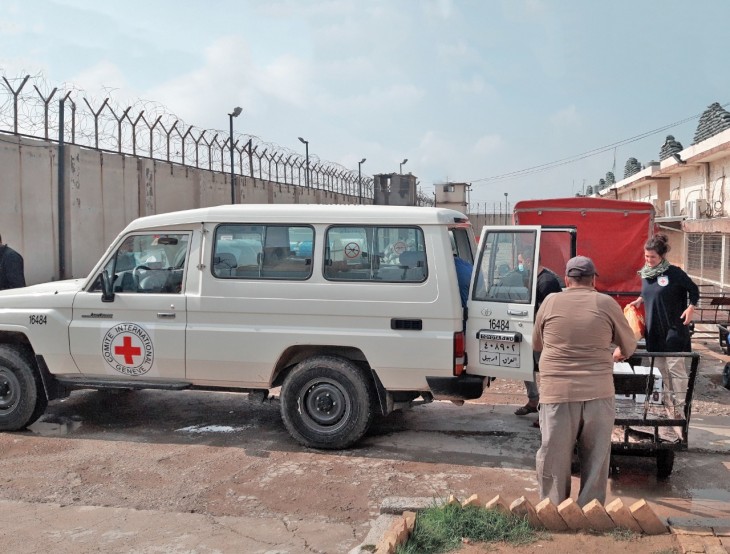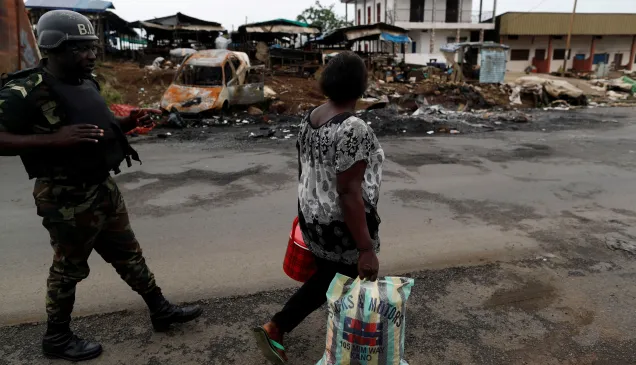COVID-19: ICRC response in Iraq
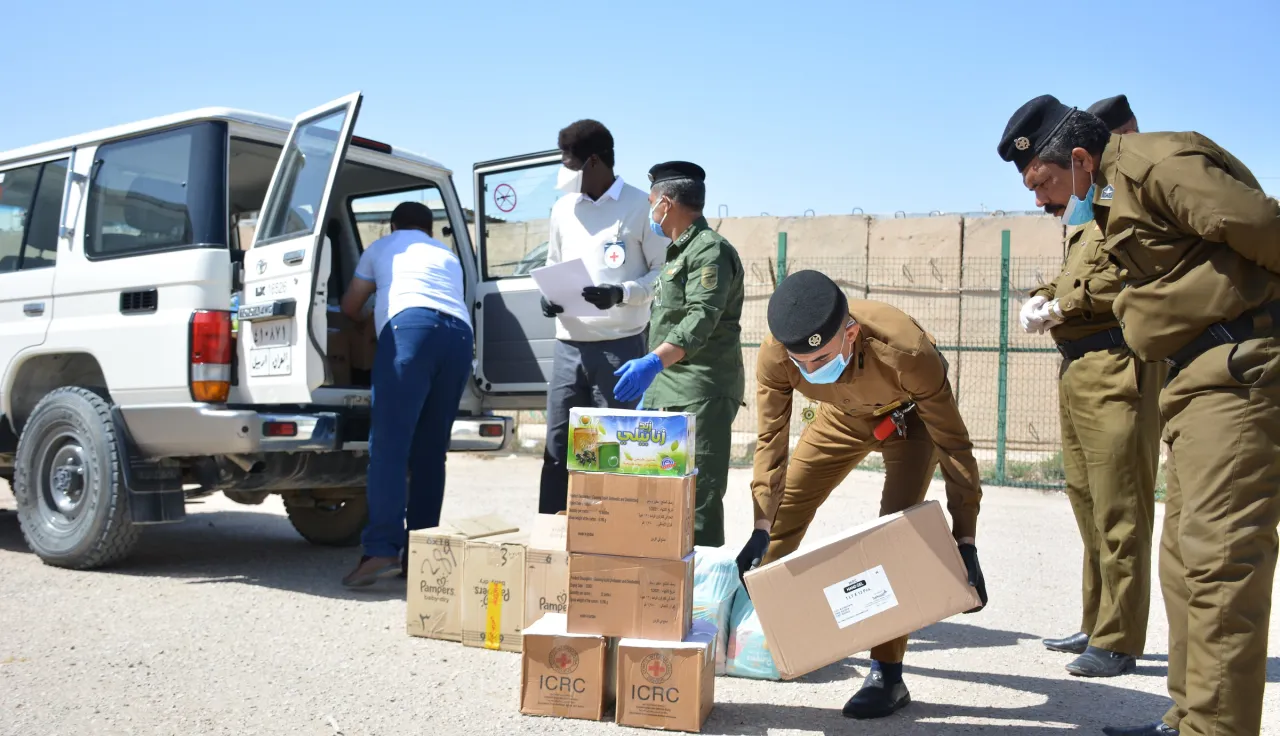
The first COVID-19 case in Iraq was officially confirmed on 24 February 2020, and as figures continue to rise across the country, authorities are adopting increasingly stringent measures to avert further spread of the virus. While these important measures can help contain the outbreak, they are also creating serious additional challenges for a population suffering from decades of conflict, economic deprivation, and political uncertainty
As the crisis progresses, the ICRC, therefore, strives to both ensure that its existing humanitarian programmes are not jeopardized in the mid to long term and adjust responses to address emerging health-related and other needs and concerns. Meanwhile, we are recalibrating our support to the Iraqi Red Crescent Society (IRCS), which remains in the lead within the Red Cross and Red Crescent Movement when it comes to complementing the government's response to health emergencies.
An already fragile health care system under pressure to perform
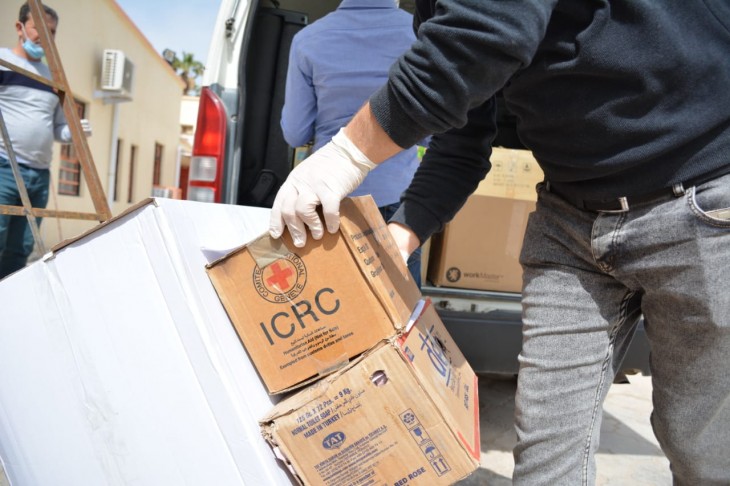
Our teams deliver personal protective equipment and disinfection materials to Shinafiya and Hilal primary health care centers in southern Iraq
To help ensure that the health structures the ICRC supports across the country can continue to fulfill their vital functions while limiting exposure risks for both patients and staff, we:
- are maintaining our normal programmes, which include monthly drug donations to 18 Primary Health Care Centres (PHCCs) and two hospitals.
- provided these 18 PHCCs and two hospitals as well as 15 Physical Rehabilitation Centres (PRCs) with soap and disinfectant, personal protective equipment (such as gloves, gowns, and goggles), and non-contact infrared thermometers.
- carried out COVID-19 awareness and prevention sessions for nearly 500 staff in nine PHCCs and one hospital.
- installed ten handwashing points in seven PHCCs at strategic locations, notably the main entrances; and are installing 23 additional handwashing points in 12 PHCCs, one hospital, and two PRCs.
Thousands of detainees at high risk in the event of an outbreak in prisons
We have supported 27 prisons holding 45,000 detainees with infection prevention items to help them combat COVID-19. Here our teams donate items to prison in Kirkuk
Detainees are a particularly vulnerable section of the population, especially in facilities that may be overcrowded, have poor hygiene, or lack ventilation – and at dire risk should an outbreak occur. They also tend to be forgotten during national emergencies. Accordingly, the ICRC:
- has been providing guidance on preparedness and response measures in the framework of its existing dialogue with detaining authorities, drawing on its long-standing expertise in the management of contagious diseases in prisons.
- continues to provide support to six prison clinics where projects to improve health care for detainees are ongoing, implemented jointly by the ICRC, the Ministry of Health, and the Iraqi Corrections Service.
- supported 27 places of detention under the Ministries of Defense, Interior and Justice, housing a total of 45,000 detainees, with donations of soap and disinfectant, personal protective equipment (such as gloves, gowns, and goggles), and non-contact infrared thermometers.
- is donating sprayers, necessary chlorine for disinfection, and materials for the installation of handwashing points positioned in the main entrances and accesses to buildings.
Families worried about the well-being of their loved ones
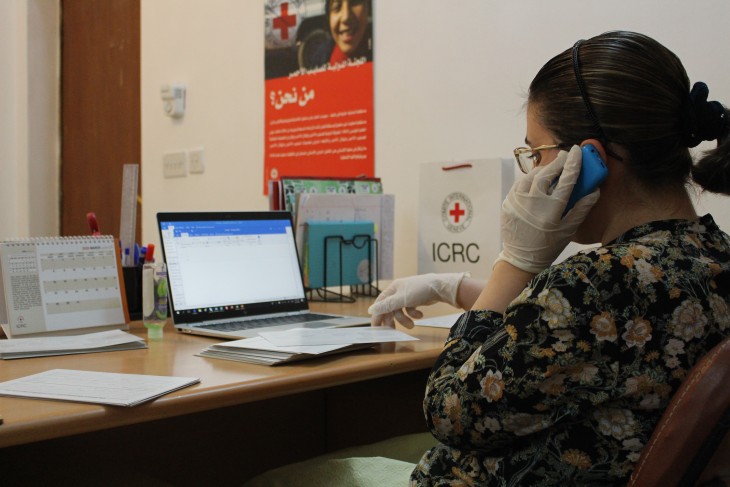
An ICRC colleague in Basra conveys messages to the families of detainees during the COVID-19 pandemic
Following the suspension of family visits to all places of detention in Iraq,the ICRC teams are informing and reassuring families of detainees across Iraq by phone about the precautionary health measures taken by the detaining authorities.
We have also donated phone credit to patients in isolation due to COVID-19 and to the health staff looking after them, to help them stay in touch with their loved ones.
Lack of safe water for displaced communities and returnees
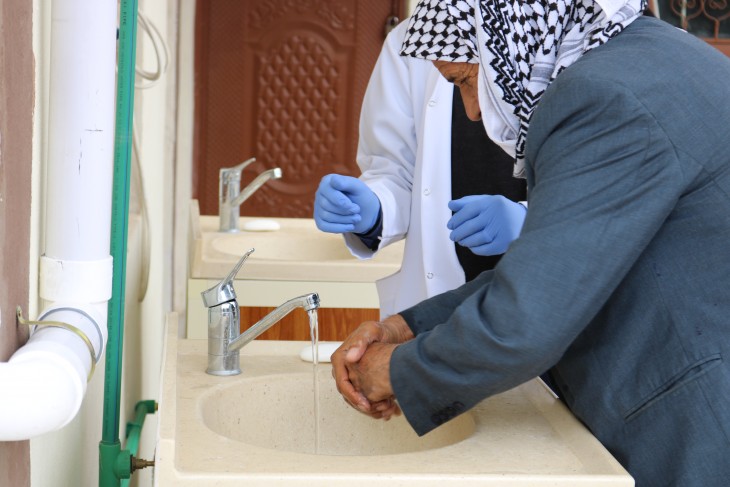
A patient washes his hands at a sink complete with a water tank installed by the ICRC at the entrance of a primary health care center in Khaniqin
As part of its humanitarian response, the ICRC therefore works on enhancing access to clean water for household and livelihood use, and has already rehabilitated three water supply systems serving nearly 19,000 people this year. We are also in the process of upgrading two additional water supply systems serving 20,000 people. This will ensure an improved sanitary environment and help increase the resilience of this population in the face the current COVID-19 outbreak.
Contribution to the IRCS awareness and prevention efforts
Since the onset of the outbreak, IRCS staff and volunteers have organized regular awareness sessions and promoted the adoption of preventive measures across the country, including for vulnerable displaced communities. Key prevention messages were delivered to the population through the distribution of awareness leaflets and posters, and the use of loudspeakers. The IRCS also intends to support vulnerable families affected by the prolonged curfew with food and hygiene kits.
The ICRC participates in the IRCS's crisis committee and provides technical input into the COVID-19 response plan. It has also redirected planned program funds for 2020 to assist the IRCS in its COVID-19 response, in coordination with other movement partners. In addition, the ICRC has supported the design of the IRCS's social media awareness strategy, as well as the formulation of corresponding content and creation of visual material, while reallocating necessary funds for printing and other costs.
With an eye on the future: Livelihoods at stake
In the longer term, movement limitations and other measures implemented to contain the outbreak are likely to have significant economic repercussions – and more so for those with pre-existing vulnerabilities, such as women-headed households, the disabled, IDPs and recent returnees, which the ICRC prioritizes in its traditional Economic Security programs. The ICRC, therefore, plans to step up its assistance to beneficiaries supported previously to cultivate their lands or set up small businesses, so they can shore up their projects. It is also assessing opportunities for additional assistance to other vulnerable populations assisted in the past and not benefitting from government support.

